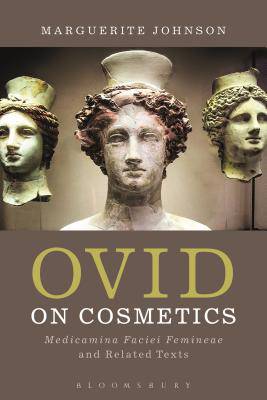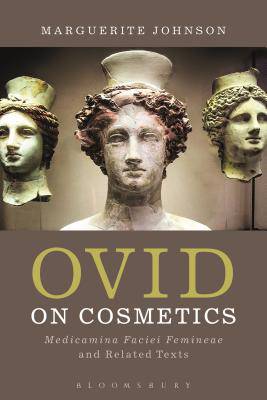
- Afhalen na 1 uur in een winkel met voorraad
- Gratis thuislevering in België vanaf € 30
- Ruim aanbod met 7 miljoen producten
- Afhalen na 1 uur in een winkel met voorraad
- Gratis thuislevering in België vanaf € 30
- Ruim aanbod met 7 miljoen producten
Zoeken
Ovid on Cosmetics
Medicamina Faciei Femineae and Related Texts
Marguerite Johnson
Hardcover | Engels
€ 228,95
+ 457 punten
Uitvoering
Omschrijving
This open access book examines the Medicamina Faciei Femineae, a didactic elegy that showcases an early example of Ovid's trademark combination of poetic instruction and trivial subject matter. Exploring female beauty and cosmeceuticals, with particular emphasis on the concept of cultus, the poem presents five practical recipes for treatments for Roman women. Covering both didactic parody and pharmacological reality, this deceptively complex poem possesses wit and vivacity and provides an important insight into Roman social mores and day-to-day activities.
The first full study in English devoted to this little-researched but multi-faceted poem, Ovid on Cosmetics includes an introduction that situates the poem within its literary heritage of didactic and elegiac poetry, its place in Ovid's oeuvre and its relevance to social values, personal aesthetics and attitudes to female beauty in Roman society. The Latin text is presented on parallel pages alongside a new translation, and all Latin words and phrases are translated for the non-specialist reader. Detailed commentary notes elucidate the text and individual phrases still further. Ovid on Cosmetics presents and explicates this witty, subversive yet significant poem. Its attention to the technicalities of cosmeceuticals and cosmetics, including detailed analyses of individual ingredients and the effects of specific creams and makeup, make this work a significant contribution to the beauty industry in antiquity. The ebook editions of this book are available open access under a CC BY-NC-ND 4.0 licence on bloomsburycollections.com. Open access was funded by the Knowledge Unlatched programme.Specificaties
Betrokkenen
- Auteur(s):
- Uitgeverij:
Inhoud
- Aantal bladzijden:
- 192
- Taal:
- Engels
Eigenschappen
- Productcode (EAN):
- 9781472514424
- Verschijningsdatum:
- 28/01/2016
- Uitvoering:
- Hardcover
- Formaat:
- Genaaid
- Afmetingen:
- 163 mm x 241 mm
- Gewicht:
- 439 g

Alleen bij Standaard Boekhandel
+ 457 punten op je klantenkaart van Standaard Boekhandel
Beoordelingen
We publiceren alleen reviews die voldoen aan de voorwaarden voor reviews. Bekijk onze voorwaarden voor reviews.








